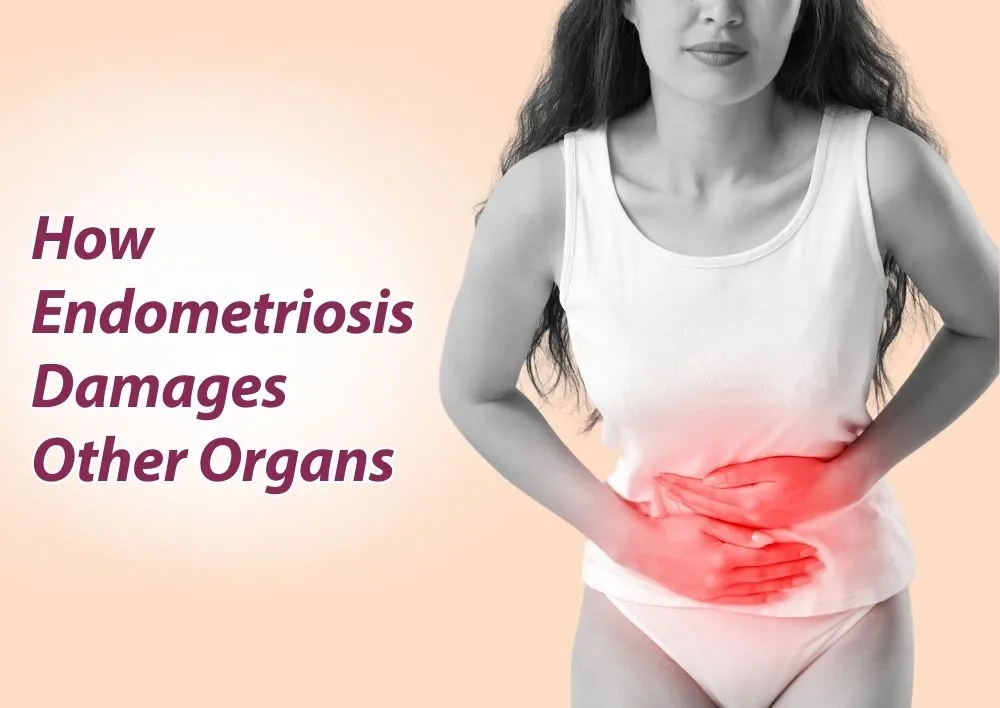Low Sperm Count: Can I Still Be a Father?
When a couple faces difficulty conceiving, it can be a stressful and emotional journey. One common issue that many men encounter is low sperm count, medically known as oligospermia. If you or someone you love is combating this, the good news is that a low sperm count doesn't necessarily mean you can't become a father. Normal sperm count is an important factor in male fertility. According to the World Health Organization (WHO) standards, the normal range for sperm count is at least 15 million sperm per milliliter of semen. While a low sperm count can make conception more challenging, it does not necessarily prevent it. In this blog post, Dr. Richa Sharma, the leading infertility specialist in gurgaon at Miracles Fertility & IVF Clinic explains the meaning of low sperm count, its causes, treatments, and the options available to desiring parents.
What is Low Sperm Count
Low sperm count is defined as having fewer than 15 million sperm/milliliter of semen. The fewer the sperm, the lower the chances are for one of them to fertilize an egg. However, quantity isn't the only factor; sperm quality and motility (movement) also play crucial roles in fertility.
Causes of oligospermia ( Low Sperm Count)
Low sperm count can be caused by several factors. Understanding these causes can help in addressing and potentially treating the condition. The main causes of oligospermia include:
1. Lifestyle Factors
-
Smoking: Tobacco use can negatively impact sperm production and quality. Smoking is linked to reduced sperm count and motility, as well as increased sperm abnormalities.
-
Excessive Alcohol Consumption: Excessive consumption of alcohol can interfere with hormone levels and sperm production, leading to a lower sperm count.
-
Drug Use: The use of recreational drugs like marijuana or cocaine can adversely affect sperm count and overall reproductive health.
-
Obesity: Excess body weight can lead to hormonal imbalances and reduced sperm production. Fat cells produce estrogen, which can interfere with testosterone levels and sperm production.
-
Poor Diet: Nutritional deficiencies or a diet high in processed foods and low in essential nutrients can impact sperm health. Deficiencies in zinc, vitamin C, and folic acid are particularly associated with lower sperm count.
2. Medical Conditions
-
Infections: Certain infections, such as sexually transmitted infections or inflammation of the testicles and epididymitis, can also affect sperm production and transport.
-
Hormonal Imbalances: Disorders affecting hormone levels, such as low levels of testosterone or high levels of estrogen, can disrupt sperm production. Conditions like hypothyroidism or hyperthyroidism can also impact sperm count.
-
Diabetes: Poorly controlled diabetes can lead to nerve damage and other complications that affect sperm production and quality.
3. Environmental Factors
-
Exposure to Chemicals: Occupational or environmental exposure to industrial chemicals, heavy metals, and pesticides can negatively affect the production and quality of sperm.
-
Radiation: Exposure to radiation from X-rays or radiation therapy can damage sperm cells and reduce sperm count.
-
Heat Exposure: Prolonged exposure to heat through different sources such as hot tubs, saunas, or tight clothing, can increase testicular temperature and impair sperm production. The testicles need to be slightly cooler than the temperature of the body for optimal sperm production.
3. Medications and Treatments
-
Certain Medications: Medications such as blood pressure drugs, antidepressants, and some antibiotics can affect sperm production or function as a side effect.
-
Cancer Treatments: Treatments for cancer, such as chemotherapy and radiation, can damage sperm production and reduce sperm count.
4. Genetic and Structural Issues
-
Genetic Mutations: Certain genetic conditions and mutations can directly affect sperm production or function.
-
Structural Problems: Abnormalities in the reproductive tract, such as blockages or abnormalities in the vas deferens, can interfere with sperm transport and lead to a low sperm count.
If you’re experiencing low sperm count, it’s important to consult with a fertility specialist near you to determine the underlying cause.
Oligospermia (Low Sperm Count) Symptoms
Oligospermia symptoms might not always be obvious, but some signs can include:
-
Difficulty Conceiving: The most noticeable sign is difficulty in achieving pregnancy with a partner despite regular, unprotected intercourse.
-
Reduced Libido: A decrease in sexual desire or performance could be related to hormonal imbalances affecting sperm production.
-
Erectile Dysfunction: Trouble achieving or maintaining an erection can sometimes be linked to sperm count issues.
-
Pain, Swelling, or Lumps: Unexplained pain, swelling, or lumps in the testicles or scrotum could indicate underlying conditions affecting sperm production.
-
Decreased Ejaculation: Changes in the volume or consistency of ejaculation, such as a decrease in the amount of semen, may be a symptom.
-
Hormonal Symptoms: Symptoms related to hormonal changes, like changes in hair growth or breast tenderness, might indicate an underlying hormonal issue impacting sperm production.
If someone is experiencing any of these symptoms or has concerns about fertility, it’s important to consult a fertility specialist for a comprehensive evaluation and appropriate tests.
Oligospermia (Low Sperm Count) Diagnosis
Diagnosing low sperm count involves several steps to evaluate male fertility and identify any underlying issues. The oligospermia diagnosis procedure includes:
-
Medical History and Physical Exam: A fertility specialist will start with a thorough medical history, including any previous illnesses, surgeries, or lifestyle factors that might affect fertility. They will also perform a physical examination to check for any physical abnormalities or signs of hormonal imbalances.
-
Semen Analysis: This is the primary test used to diagnose low sperm count. A semen sample is collected and analyzed for the following:
-
Sperm Count: The number of sperm per milliliter of semen.
-
Sperm Motility: The percentage of sperm that are moving and their movement patterns.
-
Sperm Morphology: The shape and size of the sperm.
-
Volume: The total amount of semen in the sample.
-
pH Level: To know the acidity or alkalinity of the semen.
-
-
Hormone Testing: Blood tests may be done to check hormone levels that affect sperm production, such as:
-
Testosterone: The primary male sex hormone.
-
Follicle-stimulating hormone (FSH): Regulates sperm production.
-
Luteinizing Hormone (LH): Stimulates testosterone production.
-
Prolactin: High levels can affect fertility.
-
-
Genetic Testing: If there are signs of a genetic issue, tests might be done to check for chromosomal abnormalities like Klinefelter syndrome or Y chromosome microdeletions that can affect sperm production.
-
Scrotal Ultrasound: This imaging test can help identify structural problems like varicoceles that might impact sperm production.
-
Additional Tests: Depending on the findings, further tests might be recommended, such as:
-
Post-Ejaculation Urinalysis: To check for sperm in the urine, which can indicate a blockage in the reproductive tract.
-
Testicular Biopsy: In rare cases, a biopsy of the testicle might be performed to examine sperm production directly.
-
Oligospermia (Low Sperm Count) Treatment
While a low sperm count can be challenging. Oligospermia treatment options depend on the underlying cause and can include medical, lifestyle, and surgical interventions.
1. Lifestyle Changes
-
Diet and Nutrition: Improving diet with nutrients known to support reproductive health, such as vitamins C and E, zinc, and folic acid, can be beneficial.
-
Weight Management: Maintaining a healthy weight can improve hormone levels and sperm production.
-
Exercise: Regular, moderate exercise can help enhance overall health and fertility.
-
Avoiding Toxins: Reducing exposure to environmental toxins, such as pesticides, heavy metals, and chemicals, as well as avoiding smoking and excessive alcohol consumption, can positively affect sperm quality.
2. Surgical Interventions
-
Varicocele Repair: If a varicocele is affecting sperm count, surgery to correct this condition may improve sperm production.
-
Surgery for Blockages: Surgical procedures might be needed to correct blockages in the reproductive tract that are preventing sperm from reaching the ejaculate.
3. Assisted Reproductive Technologies (ART)
-
Intrauterine Insemination (IUI): A procedure where sperm is directly injected into the uterus during ovulation, which can be beneficial if sperm count is low but sperm motility is adequate.
-
In Vitro Fertilization (IVF): In cases of severe sperm count issues, IVF can be used where sperm and egg are combined outside the body, and the resulting embryo is implanted into the uterus.
-
Intracytoplasmic Sperm Injection (ICSI): It is a specialized form of IVF, in which a single sperm is injected directly into an egg. This is often used when sperm count is very low or when sperm quality is poor.
4. Addressing Underlying Health Issues
-
Treatment of Chronic Conditions: Managing conditions like diabetes, high blood pressure, or any other chronic illnesses that might be impacting sperm production.
-
Psychological Counseling: If stress or mental health issues are contributing to fertility problems, counseling or therapy might be beneficial.
Conclusion:
A low sperm count can be a hurdle on the path to parenthood, but it doesn't make fatherhood impossible. With the right medical care, lifestyle adjustments, and support, many men with low sperm counts have successfully become fathers. If you're facing this issue, consult the best fertility doctor near you at Miracles Healthcare to explore the best options for your situation. Remember, every fertility journey is unique, and there's no one-size-fits-all solution. Stay hopeful and informed, and take proactive steps toward achieving your dream of becoming a parent.















Was the information useful?
0 0